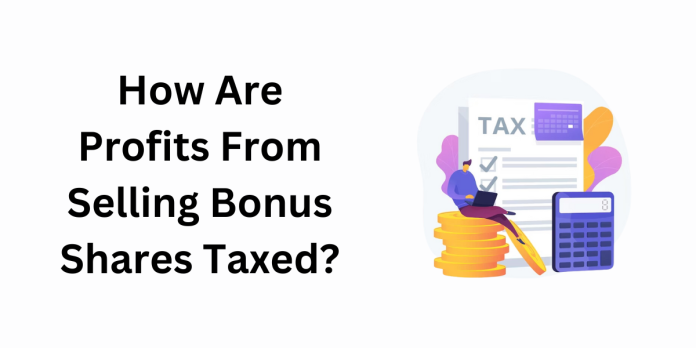Taxation of bonus shares can vary depending on the jurisdiction and the specific tax laws in place. In general, the taxation of bonus shares is often treated differently than that of cash bonuses. Here’s a general overview, but it’s essential to consult with a tax professional or local tax authorities for accurate and up-to-date information
Note: No tax is levied at the time of the allotment of bonus shares. Taxes are applicable only on the sale of these shares
Taxable Event
In many jurisdictions, the receipt of bonus shares is not considered an immediate taxable event. This means that you may not have to pay taxes at the time of receiving the bonus shares.
Taxation upon Sale
The tax liability typically arises when you sell the bonus shares. The capital gain or loss is calculated based on the difference between the selling price and the fair market value of the bonus shares at the time they were received.
Calculation of Capital Gain
The capital gain is generally calculated as follows:
Capital Gain = (Selling Price – Fair Market Value at Receipt) × Number of Bonus Shares Sold
Holding Period
Some jurisdictions may offer tax incentives based on the holding period. If you hold the bonus shares for a specified period, such as one year, you may qualify for lower capital gains tax rates.
Reporting Requirements
Ensure that you accurately report the sale of bonus shares in your annual tax return. You may need to provide details such as the acquisition date, fair market value at the time of receipt, selling price, and any other relevant information.
Dividends on Bonus Shares
If the bonus shares pay dividends, these dividends are typically taxable in the year they are received, similar to regular dividends on existing shares.
Read: What Are Corporate Actions in Share Market
Employee Stock Options
If bonus shares are received as part of an employee stock option plan, there may be additional considerations and tax implications related to employee stock options.
For example, how are profits from selling bonus shares taxed as capital gains?
Let’s consider the case of Mukesh, who purchased 300 shares of Tata Motors in June 2019 at Rs. 200 per share. In January 2024, the company declared a 1:1 bonus issue, allotting 300 bonus shares for every share held. In March 2024, Mukesh sold the 300 bonus shares at Rs. 300 per share.
It’s important to note that the calculation of capital gains for the original and bonus shares involves separate considerations:
The holding period, acquisition cost, and resulting capital gains for the original 300 shares are computed independently.
For bonus shares, the acquisition cost is considered to be 0. In real-time bonus issues, the acquisition cost is often the Fair Market Value at the time of receipt.
In this scenario:
The original 300 shares qualify for Long-Term Capital Gains (LTCG) tax, as they were held for more than 1 year.
The bonus 300 shares are subject to Short-Term Capital Gains (STCG) tax, as they were held for less than 1 year.
Since the acquisition cost for bonus shares is considered as 0, the capital gain on the sale of these bonus shares is equivalent to their selling price. It’s crucial to keep in mind these distinctions while calculating and reporting capital gains for tax purposes.
| Particulars | Bonus Share (Qty x Price) | Amount | Bonus Share (Qty x Price) | Amount |
| Purchase Price | 300 * 200 | Rs 60,000 | 300 * Nil | Nil |
| Sale Price | 300 * 300 | Rs 90,000 | 300 * 300 | Rs 90,000 |
| Capital Gain | Rs 1,50,000 | – | Rs 90,000 | |
| Holding Period | more than 12 months | less than 12 months | ||
| Type of Capital Gain | LTCG | STCG | ||


